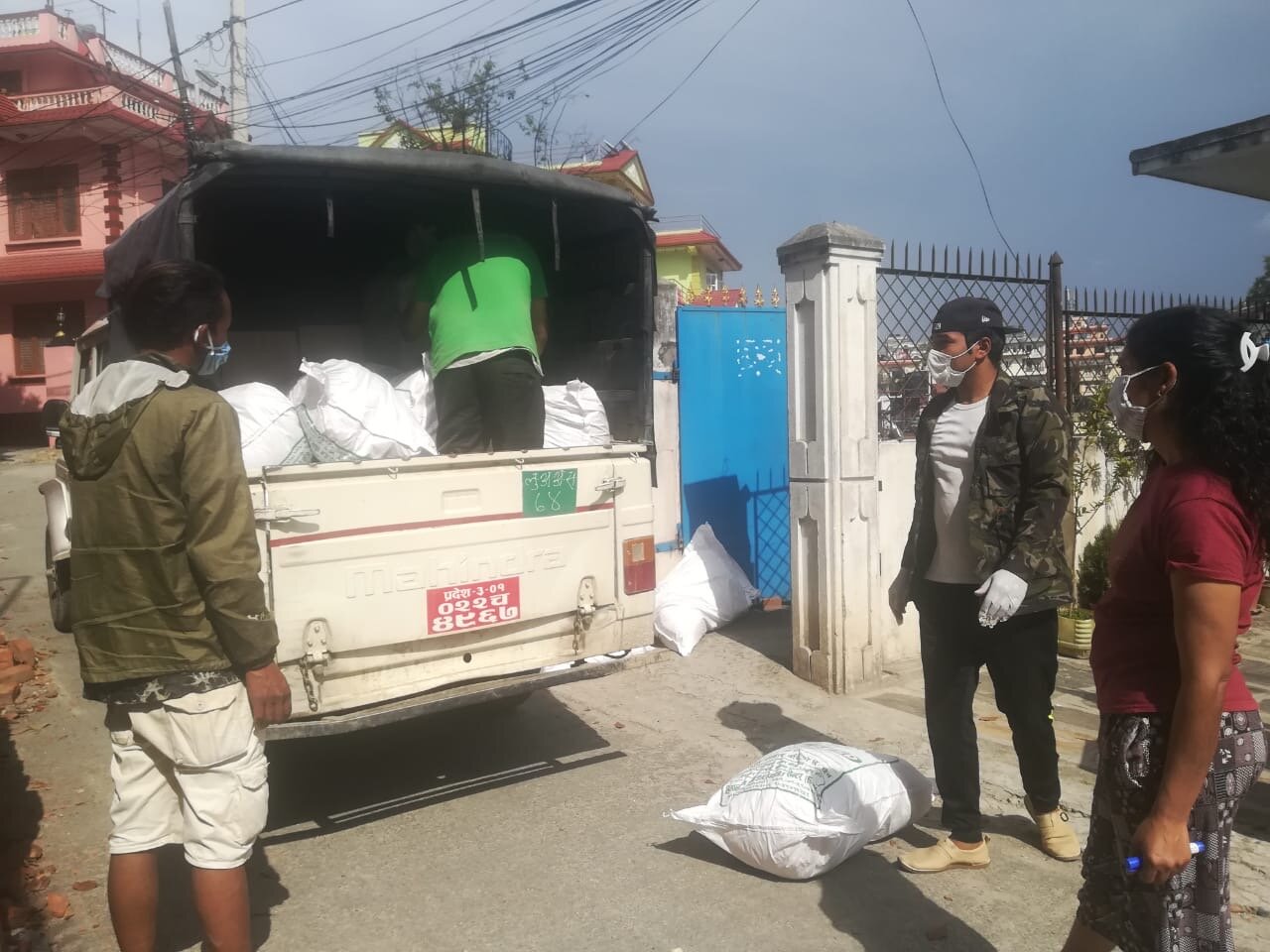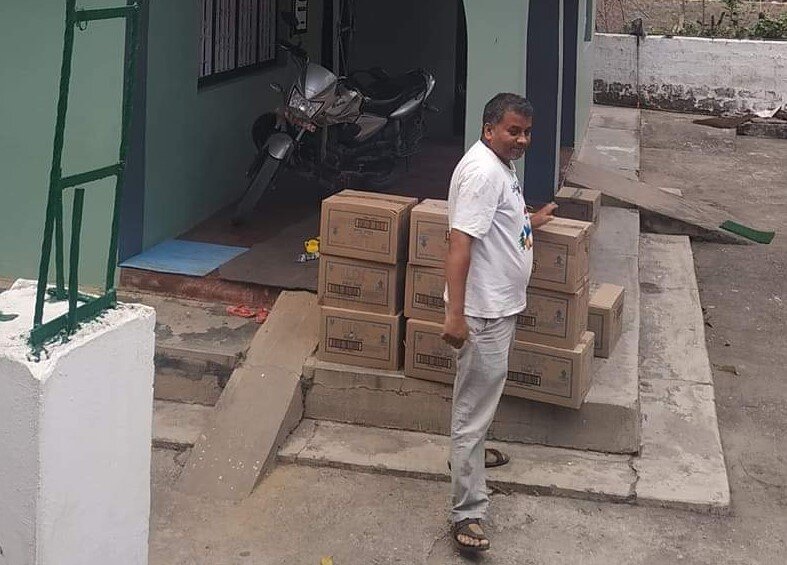UPDATED: 12.05 GMT: 25th March
From Sajana Bhadel – President of Girls Empowered By Travel -Nepal (GET-Nepal).
Today is the second day of Lock-down. Everything was closed Yesterday (Kathmandu). I think the situation will be same today. We basically follow this Facebook page for the updates: https://www.facebook.com/officialroutineofnepalbanda
Everything will be closed besides these services; Important Notice: Home Ministry has made it clear that emergency/essential services like Health, Security, Food (i.e Daal, Rice etc), Water, Milk, Electricity, Telecommunications, Information and Communication, Waste Management etc will not be closed.
In Southern Nepal, Birgunj city, Parsa district, GET-Nepal have organised some awareness programs regarding COVID_19 (Hygiene/handwashing) and they distributed some masks, but pics show no social distancing.
UPDATED: 11.30 GMT: 25th March
From Kanchan Kattel (Alumni TGT Higher Education Programme, in Kirtipur, Kathmandu)
So the whole country is under lock down. I'm locked up in the hostel with few other people and food for a week or so. Many people including my hostel mates rushed to villages few days ago (of course increasing the chances of transmission on the way and to the villages that were at much lower risk otherwise).
Only ambulance, health workers van, food/ fuel and pharmaceutical suppliers get the special pass to drive (probably the press too but not sure of that). Markets open up early in the morning for a hour or two and in the evening for few hours. This lock down is said to be for a week starting from 6 am yesterday but maybe it will extend looking at the situation. There's one positive case so far, the patient is the Nepali student who came all the way from France via Qatar Airways. Authorities are trying to trace her contacts and the passengers who came along with her. People are worried about the cases that are yet to be recorded.
UPDATED: 13.00 GMT: 24th March
From Dinanath Bhandari (TGT volunteer and Development professional based in Kathmandu)
Lock down has started. I hear news that people are obeying it mostly. But in the area where I am living in Kathmandu, house building goes on as usual and people are walking, some of them seems to collect essential items like drinking water. Especially those who live on daily wages, seem to keep on working.
UPDATED: 23.20 GMT: 23rd March
via Dinanath Bhandari (TGT volunteer, Kathmandu)
The Nepal Government has announced strict controls on all citizens:
These 8 decisions will be implemented from 6AM tomorrow (24th March)
No one should go out except for medical emergencies and food purchases.
All kinds of public and private vehicles are banned except for the permitted vehicles, and those used by medical professionals and security agencies.
All domestic flights are halted except for the ones used by the security agencies and other designated flights.
Related heads of offices should grant a leave except for the most essential services like health, security, food, water, milk, electricity, telecommunication, information and communication, customs, quarantine, garbage management.
Except for drugs and health equipment manufacturing, food, water, milk, energy companies, all other private industries grant a leave to workers and staff.
Businesses should manage ways to supply drugs and drugs-related material. Those hoarding goods, creating artificial shortage, black marketers, and obstructing supplies will be punished as per the law, and those goods will be confiscated and used in medical treatments.
This order is implemented as per the Infectious Disease Act, 2020’s Subsection 2 of Section 2. To implement this order, all chief district officers will be mobilized and the Local administration Act, 2028 will be activated.
Those disobeying or obstructing the order as per the Infectious Disease Act, 2020 will be punished as mentioned in the Act.
https://myrepublica.nagariknetwork.com/amp/these-8-decisions-will-be-implemented-from-6am-tomorrow/news.html.twig
UPDATED: 13.40 GMT: 20th March
From Narayan Dhakhal (Eco Himal)
Nepal Government has decided to lockdown gathering and movement of people in public areas from 22 March till 3rd of April 2020 until further notice. Our office remains closed and we will try to work from home as much as possible. I will notify all the staff members to stay at home and work if possible from there. Most of the staff has no such capacity. It means all of staff members will have sort of holiday.
This follows the Nepal PM’s address to the nation. More on that here: https://thehimalayantimes.com/kathmandu/pm-oli-delivers-special-address-all-flights-suspended-from-march-to/
UPDATED: 11.30 GMT: 20th March
From Narayan Dhakhal (Eco Himal)
Narayan has sent thorough a photo of the COVID-19 health awareness posters Eco Himal are distributing across the communities we are working with.
Nepal Prime Minister KP Sharma Oli is addressing the nation this evening.






































